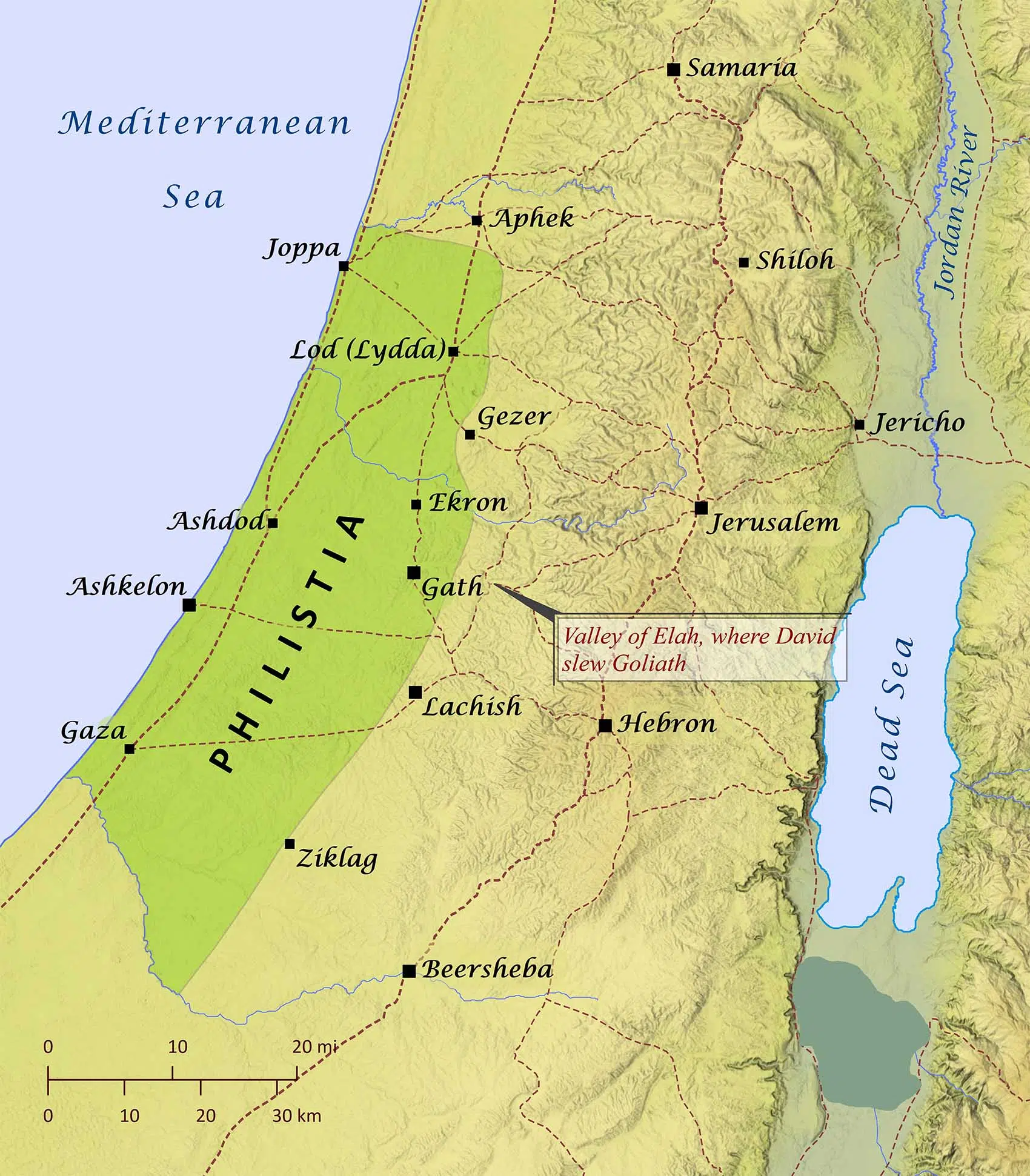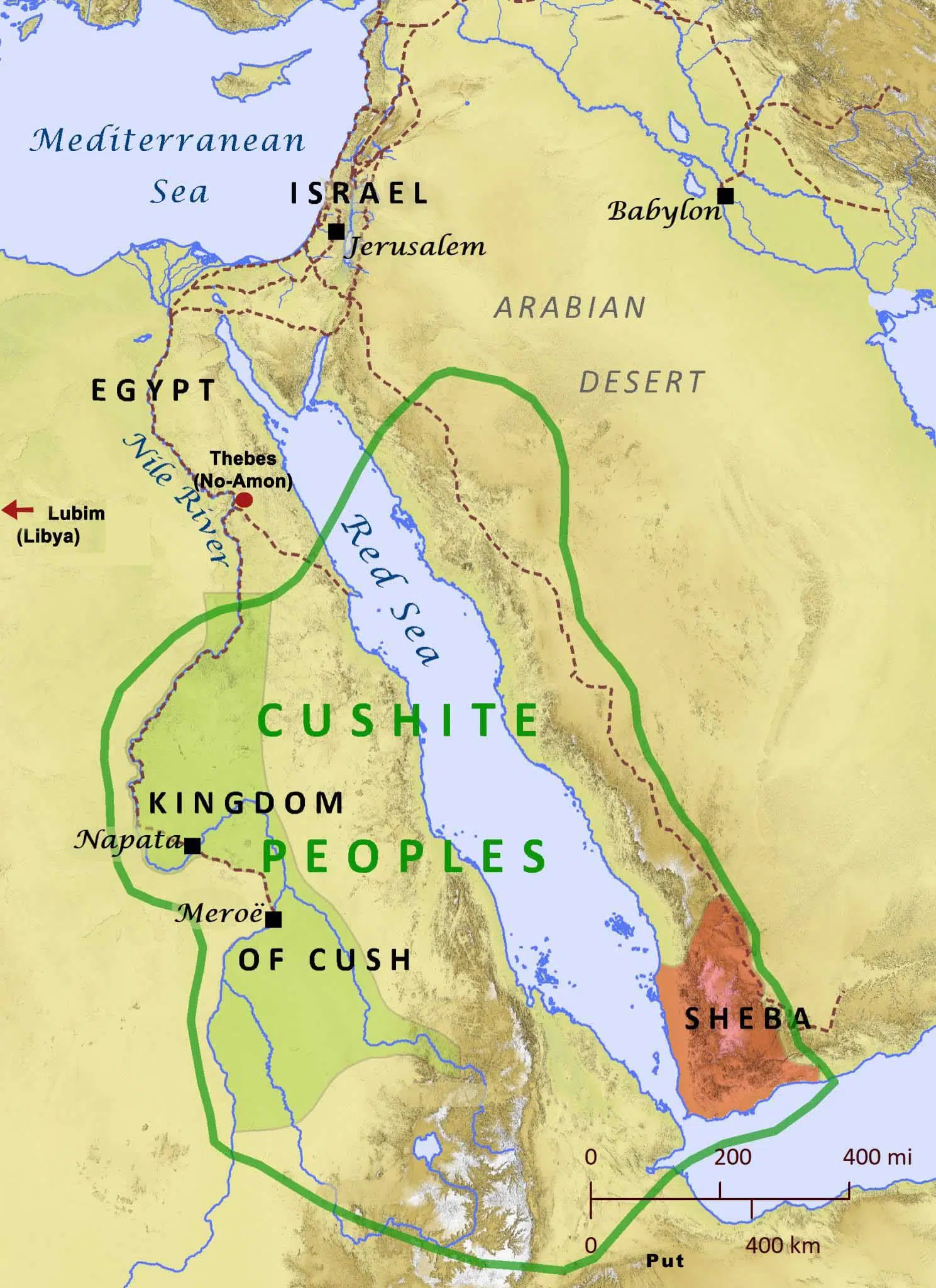The LORD pronounces judgment against the Ethiopians. He will judge them with the sword of war.
The LORD continued His message of judgment on the nations neighboring Judah. This time, the indictment fell on Ethiopia in the south. God did not say much about the land of Ethiopia, nor did He give the reason for the judgment. He simply announced the downfall of the nation, saying: You also, O Ethiopians, will be slain by My sword (vs 12).
The term translated Ethiopian is “Cushite” in Hebrew. It refers to the residents of the African region of Nubia. The area to which Cush refers is not modern Ethiopia but the area along the Nile just south of Egypt. This place was also called Nubia, roughly corresponding to modern Sudan.
The Cushites (or Ethiopians) were descendants of Cush, the oldest son of Ham (Genesis 10:6; 1 Chronicles 1:8). The term Cush means “black,” and, historically, the Cushites were dark-skinned (Jeremiah 13:23). Moses married a wife who was a Cushite (Numbers 12:1). We are told little more than that these Ethiopians will by slain by God’s sword. The image of the sword means the Ethiopians would be defeated in battle.
We are not told here what the Ethiopians did that brought on God’s judgment. It appears that there was a type of exile of Jewish people to Cush, because in Zephaniah 3:10 it says:
“From beyond the rivers of Ethiopia [Cush] My worshipers, My dispersed ones, Will bring My offerings.”
2 Kings 19:9 implies that Cush attempted to aid Hezekiah against the Assyrians. This would indicate that Cush was a player on the international stage, with material military power. However, we are not told details.
From history it is likely this prophecy came to pass when King Cambyses II of Persia defeated Egypt and Ethiopia in 525 BC and brought them into the Persian empire.
Biblical Text
12 “You also, O Ethiopians, will be slain by My sword.”
Check out our other commentaries:
-
Matthew 7:12 meaning
Jesus commands His disciples in every circumstance to treat people the same way we want them to treat us. This is both a distillation of...... -
Revelation 3:14-19 meaning
In the letter to the church in Laodicea, the final of the seven churches, Jesus addresses the church as “the beginning and end, and the...... -
1 Thessalonians 5:23-27 meaning
Paul emphasizes one last time the goal of living a God-honoring life apart from the world, so that our body and soul will be blameless...... -
Deuteronomy 25:13-16 meaning
Moses commands the Israelites to use accurate weights and measures when they engage in commerce with other people....... -
Romans 14:21-23 meaning
Christians should not do things that may cause other believers to stumble. If believers cannot do something in faith, then they should not do that......




